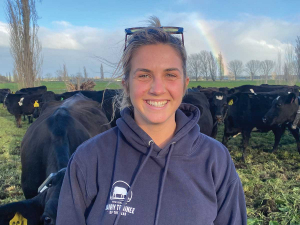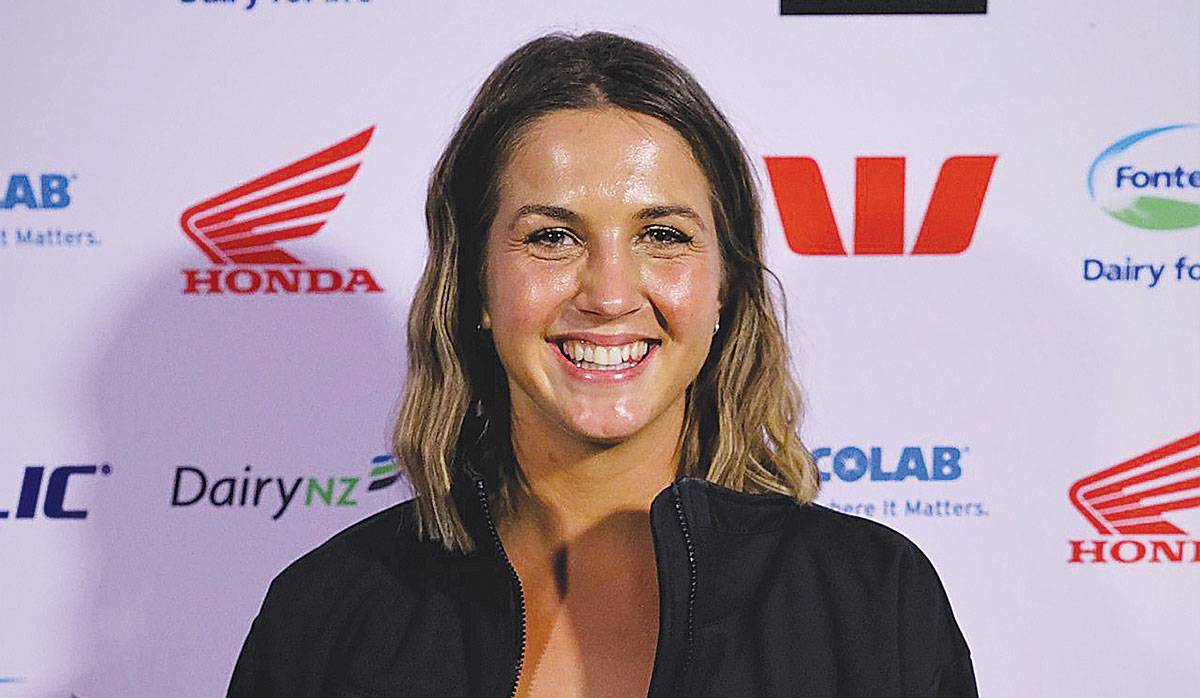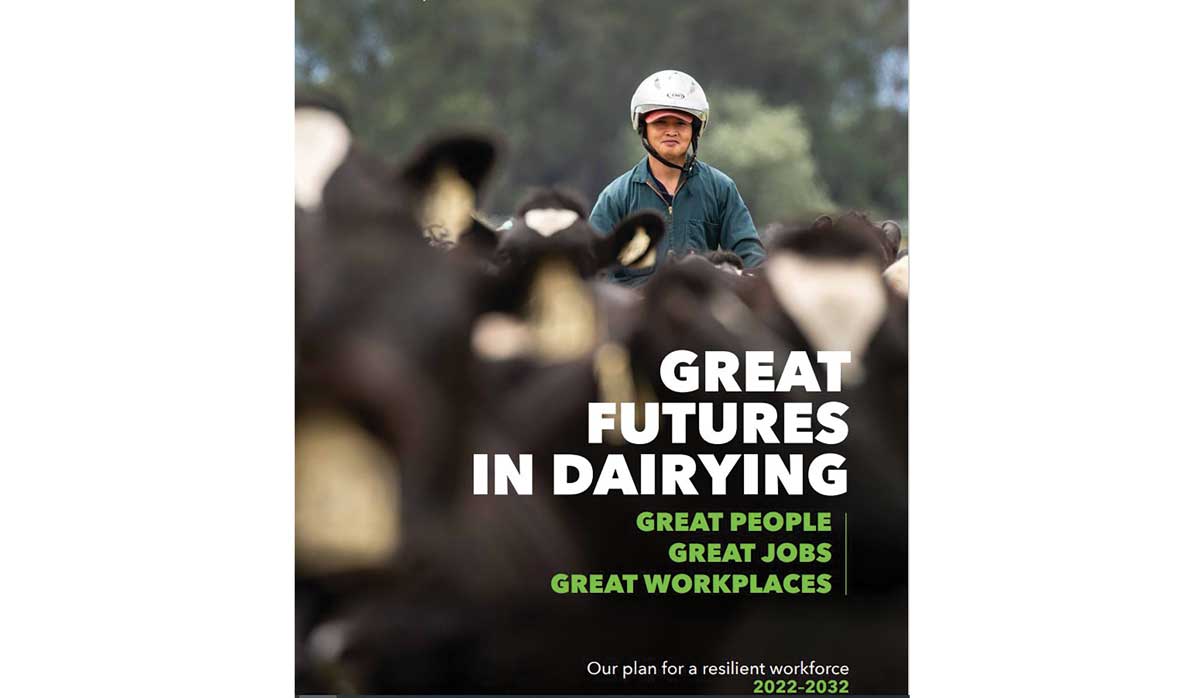DairyNZ Calls for Changes to Government’s Proposed Resource Management Act Reform
DairyNZ says the Government’s proposed Resource Management Act reform needs further work to ensure it delivers on its intent.
 Dayna Rowe says the way you treat your team and really encourage them, that makes all the difference.
Dayna Rowe says the way you treat your team and really encourage them, that makes all the difference.
Bay of Plenty dairy farm manager Dayna Rowe and her team are building a great workplace together - one so energising, no one wants to leave. Here's how they're shaping up.
Dayna Rowe's into only her second season of managing a farm team, but she's quickly found her preferred approach.
"It's the way you develop your team, it's the way you treat your team and really encourage them, that makes all the difference. That's been a huge part of my own style as I've come into managing staff," she says.
Despite being brought up on the family farm, Rowe didn't really fall in love with dairying until she got a summer job milking cows and spraying weeds at home during a university break. Four years, two farms and a lot of hard work later, Rowe was offered the 2021-22 season farm manager role on her parents' farm at Pongakawa near Te Puke.
Rowe Farm runs 970 cows on 289ha (effective), on "dead flat" land. Its peat soils lie very low and close to the water table, so it has a one-hectare herd home to feed and house the cows in during wet periods, and for calving in, in the winter months. The job offer topped off a great couple of years for Rowe; she'd won Bay of Plenty Dairy Trainee of the Year in the 2021 NZ Dairy Industry Awards, and been runner-up in the same category in 2020.
Now still only 24, her goal over the next three to five years is to continue building up the family farm, increasing her equity and purchasing some of the herd. Her passion and care for her farm team was clear for all to see when she spoke at DairyNZ's launch of its Great Futures in Dairying workforce plan. The 10-year plan addresses the sector's current labour shortage, and Rowe commented on one of its three focus areas: helping the sector to 'shape up'.
"While the plan highlights what we already know - which is that we're under-staffed as an industry - it actually turns the question back to our community and puts the ball in the farmers' court," she says.
"We know what support we need from outside the farm gates, but the Great Futures in Dairying plan asks us what we can be doing as managers and farm owners to open up those farm gates and make the industry more appetising.
"Shaping up is about being competitive with every other industry in New Zealand. It's not just about the money - it's about being competitive in the way we treat our staff; in the way we can develop them and grow them through the industry."
Rowe and her partner Sam are keen surfers, heading down some lunchtimes to Pukehina Beach. Rowe also loves and teaches dancing.
Her off-farm talents echo two key elements in her management style: balance and keeping everyone happily on their toes. Importantly, Rowe does this with their input. She lets her team have a major say in roster-setting, divvies up jobs based on their personal skillsets and preferences, holds off-farm team-building activities at least twice a season, and has a weekly team meeting on Tuesday mornings.
"Those meetings are run by the whole team. They're an open place for everyone to share, not just me speaking to them," she says.
She takes a similar approach when she sits down with each team member for a three-monthly one-on-one.
"I really let them lead that conversation, so I'm not putting any ideas in their head."
Rowe makes sure her team have an opportunity to upskill, too.
"They're welcome to do any sort of education, whether it be people management courses or Primary ITO courses. If they pass their course, we'll pay their fees - it's a little bit of an incentive for them to actually go and do well."
Milking The Schedules
Dayna Rowe says she and her team's open discussions around roster-setting aim for maximum flexibility for all, "especially in the changing times of the seasons like calving".
"I make an initial roster, then it gets redone about three times to accommodate everyone's needs as best as I can. I like to make sure there's time for everyone's relationships and extracurricular activities: study, family time, whatever is important to them."
Last season saw a move to milking ten times in seven days (10-in-7), which has given more time for on-farm work, as well as family and other things like hobbies and off-farm activities. Over calving, milking shifts to three times in two days (3-in-2), with one if those weekend days being twice-a-day miliking. They shift back to 10-in-7 at Christmas.
 |
|---|
|
Dayna Rowe won Bay of Plenty Dairy Trainee of the Year in the 2021 NZ Dairy Industry Awards. |
"A big part of it is flexibility," says Rowe. "If people want to work through the day so they can get to their kids' sport games by 3pm, or get to the doctor or other appointments, they're more than welcome to do that - so long as they communicate that with me."
Funnily enough, showing care for her team has circled back to Rowe.
“People on my team now often ask what I would like time for. They’ve offered to do things like night checks for me on the evenings where I like to do my sports after work or something. That shows they’ve noticed and appreciated me doing it for them.”
Shaping up their workplace together has given everyone staying power too. Her whole team has stuck with Rowe from the end of last season into this season. Nobody had to change over at the start of calving, which Rowe says can be much more challenging if it involves training new people.
“That was an awesome feeling, that what we’re doing together is working, people want to be here, and they want to stay a part of this team. If you get a name for yourself as a workplace environment that’s desirable to work in, you will attract people who want to work for you.”
Future Opportunities
Dayna Rowe is acutely aware that changing the way people work on-farm will be a critical part of ensuring the dairy sector can offer great jobs and great workplaces. That’s why she’s such a supporter of the Great Futures in Dairying workforce plan led by DairyNZ – and its aim to attract and retain great people to reduce the current labour shortage. She knows it’s going to take effort and buy-in from sector organisations, dairy companies, the Government, and most importantly, from farmers like herself and her team.
 |
|---|
|
|
“We’ve got so many great opportunities in the dairy industry,” Rowe says. “It’s so flexible – you can concentrate on everyone’s skillsets to decide who gets what job, too. You can think really differently about how a farm works.
“That’s what’s really cool, building a workplace that celebrates and creates a positive supportive environment. One that builds up the resilient workforce the Great futures in Dairying plan talks about.”
Budou are being picked now in Bridge Pā, the most intense and exciting time of the year for the Greencollar team – and the harvest of the finest eating grapes is weeks earlier than expected.
The Real Estate Institute of New Zealand (REINZ) has released its latest rural property report, providing a detailed view of New Zealand’s rural real estate market for the 12 months ending December 2025.
Rural retailer Farmlands has released it's latest round of half-year results, labeling it as evidence that its five-year strategy is delivering on financial performance and better value for members.
OPINION: "We are back to where we were a year ago," according to a leading banking analyst in the UK, referring to US president Donald Trump's latest imposition of a global 10% tariff on all exports into the US.
DairyNZ says the Government’s proposed Resource Management Act reform needs further work to ensure it delivers on its intent.
Overseas Trade Minister Todd McClay says he's working constructively with the Labour Party in the hope they will endorse the free trade agreement (FTA) with India when the agreement comes before Parliament for ratification.
OPINION: Expect the Indian free trade deal to feature strongly in the election campaign.
OPINION: One of the world's largest ice cream makers, Nestlé, is going cold on the viability of making the dessert.